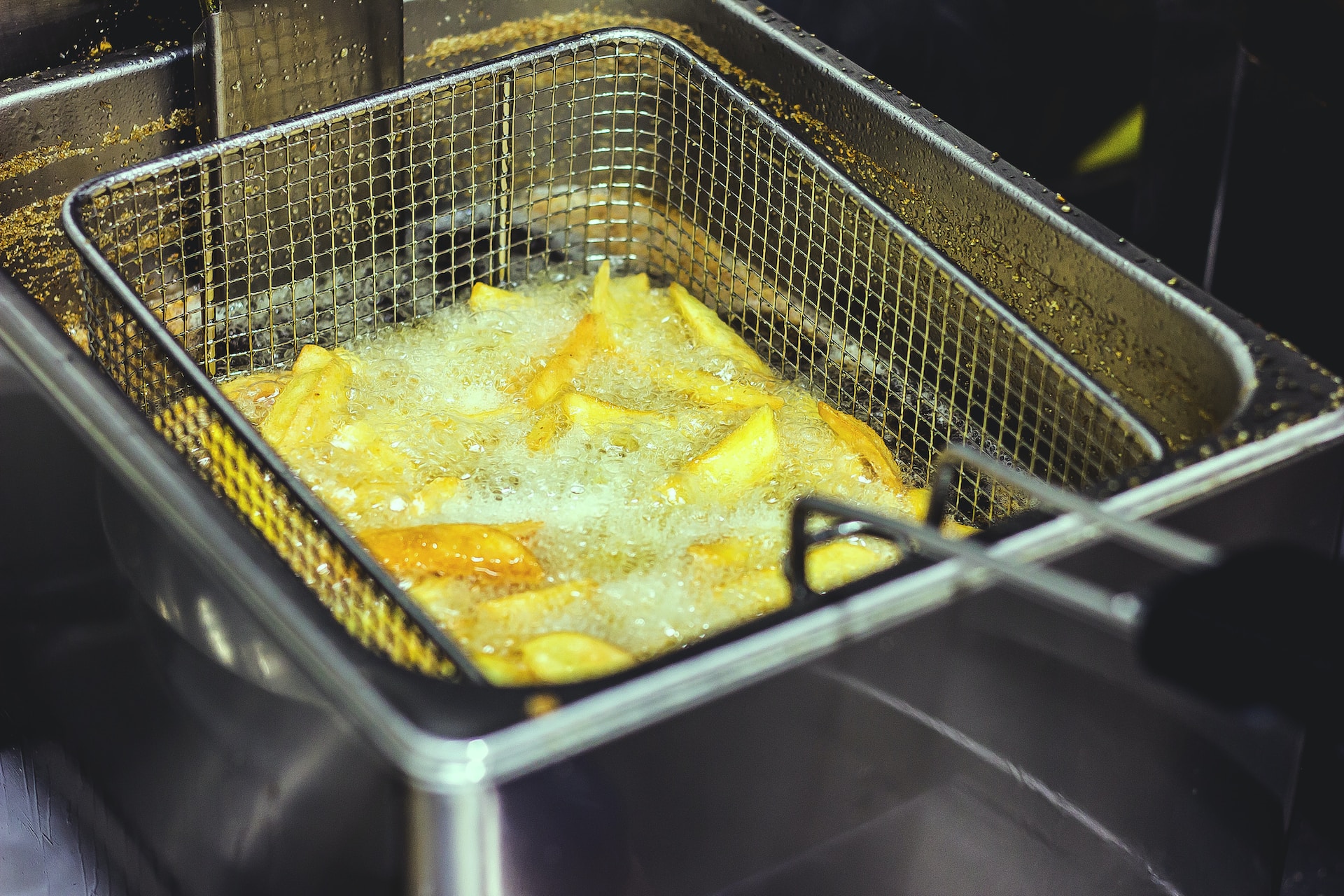As a lover of good food, you probably enjoy eating out and trying new dishes. And as you savor the delicious flavors of your meals, you may not think about the role of oil in the food you’re enjoying. But for restaurants, cooking oil is a crucial ingredient that can make or break the quality of the dishes they serve.
In this article, we’ll explore the journey of used oil in restaurants and answer the question: what do restaurants do with used oil? We’ll discuss the different types of cooking oils used in restaurants, the volume of oil used, and why it’s important for restaurants to dispose of used oil properly.
We’ll also explore the negative consequences of improper used oil disposal, including the environmental impact, the risk of fires and injuries, and the legal consequences that restaurants may face for non-compliance.
But it’s not all doom and gloom. We’ll also take a look at the ways that restaurants can manage used cooking oil responsibly. From on-site storage and disposal to hiring a professional service for used cooking oil management, we’ll explore the benefits and potential revenue streams of proper used oil disposal.
In the end, we hope to raise awareness about the importance of responsible used oil disposal and encourage restaurants to take action to protect their businesses, employees, customers, and the environment.
The Process of Cooking Oil Usage in Restaurants
When it comes to cooking oil, restaurants have a wide variety of options to choose from. Some popular types of cooking oil used in restaurants include vegetable oil, canola oil, peanut oil, and sunflower oil. However, the type of oil used can vary depending on the cuisine, cooking method, and health considerations.
For example, some restaurants may choose to use coconut oil for its unique flavor and aroma in Asian dishes, while others may opt for olive oil for its health benefits in Mediterranean cuisine.
The Volume of Oil Used by Restaurants
Restaurants use a considerable amount of oil each day. Depending on the size of the restaurant, the volume of oil used can range from a few gallons to several hundred gallons per week. This means that proper oil management is crucial for both the restaurant’s bottom line and the environment.
Improper oil management can lead to increased costs for the restaurant, including maintenance and cleaning expenses. Additionally, used oil that is not disposed of properly can harm the environment, including water and soil contamination.
Importance of Oil Disposal in Restaurants
Proper oil disposal is critical for restaurants. Used oil that is not disposed of correctly can pose a fire hazard and increase the risk of injuries to staff and customers. It can also result in environmental damage and legal consequences for non-compliance with regulations and guidelines.
For these reasons, restaurants must have a proper oil management system in place. This includes following proper procedures for storing, handling, and disposing of used oil to ensure the safety of all individuals involved and protect the environment.
The Consequences of Improper Used Oil Disposal
When used oil is disposed of improperly, it can have negative consequences on the environment. Used oil that is dumped down drains or in the garbage can lead to water and soil contamination, which can harm wildlife and affect ecosystems.
The improper disposal of used oil can also have long-term impacts on the environment. For example, when used oil is dumped in landfills, it can take hundreds of years to decompose fully.
The Risk of Fires and Injuries from Improper Used Oil Disposal
Improper used oil disposal can pose a fire hazard and increase the risk of injuries to staff and customers. Used oil is highly flammable and can ignite easily if exposed to heat sources. This is especially true if the oil is not stored properly, as it can spill and create a slippery surface.
In addition to the risk of fires, handling used oil can also be hazardous to staff and customers. Used oil is hot and can cause burns and injuries if not handled correctly.
Legal Consequences of Improper Used Oil Disposal
Restaurants that do not dispose of used oil correctly can face legal consequences. This can include fines and penalties for non-compliance with regulations and guidelines.
In extreme cases, restaurants may lose their business licenses, which can be devastating for the business and its employees.
To avoid legal consequences and protect their business, restaurants must follow proper procedures for storing, handling, and disposing of used oil. This includes following guidelines from regulatory bodies, such as the Environmental Protection Agency (EPA) and local health departments.
How Restaurants Manage Used Cooking Oil
Restaurants have several options for managing used cooking oil. One option is to store the oil on-site until it can be disposed of properly. This involves using a specialized container to store the oil and ensuring that it is stored in a secure location.
Another option is to hire a professional service for used cooking oil management. These services can provide regular pickup and disposal of used oil, ensuring that it is handled safely and in compliance with regulations.
Recycling Used Cooking Oil
Another option for managing used cooking oil is to recycle it. Recycling used oil can provide several benefits, including reducing waste, protecting the environment, and potentially generating revenue.
When used oil is recycled, it can be processed into other products such as biofuels, soaps, and lubricants. Some restaurants may also be able to sell their used cooking oil to companies that specialize in recycling.
Hiring a Professional Company for Used Cooking Oil Management
Hiring a professional company for used cooking oil management can provide several benefits for restaurants. These services can ensure that used oil is collected and disposed of safely and in compliance with regulations.
In addition, professional companies can often provide recycling services for used cooking oil, allowing restaurants to reduce their waste and potentially generate revenue from the sale of the recycled oil.
When selecting a professional company for used cooking oil management, it’s essential to choose a reliable service that has experience in the industry and a proven track record of safety and compliance.
By choosing the right option for managing used cooking oil, restaurants can ensure that they are disposing of their oil safely and responsibly. This can help to protect the environment, reduce costs, and ensure compliance with regulations.
Benefits of Proper Used Oil Disposal
Proper used oil disposal can have a positive environmental impact. By recycling used oil, restaurants can reduce waste and protect the environment from pollution and contamination. This can help to preserve natural resources and protect wildlife and ecosystems.
In addition, recycling used oil can have additional environmental benefits. For example, used oil can be processed into biofuels, which can help to reduce dependence on non-renewable energy sources.
Potential Revenue Streams from Used Oil Recycling
Recycling used oil can also provide potential revenue streams for restaurants. By selling their used cooking oil to companies that specialize in recycling, restaurants can generate income from a product that would otherwise be considered waste.
In addition, some companies may offer free collection and disposal services for used cooking oil, providing an additional cost-saving benefit for restaurants.
Improved Safety for Employees and Customers
Proper used oil disposal can also improve safety for employees and customers. By following proper procedures for storing, handling, and disposing of used oil, restaurants can reduce the risk of accidents and injuries.
In addition, recycling used oil can reduce the amount of oil that needs to be stored on-site, reducing the risk of spills and accidents.
By prioritizing proper used oil disposal, restaurants can improve the safety of their workplace and protect their employees and customers from harm.
FAQs
What do restaurants do with leftover frying oil?
Restaurants have several options for managing leftover frying oil, depending on their resources and priorities. One option is to store the oil on-site until it can be disposed of properly. This involves using a specialized container to store the oil and ensuring that it is stored in a secure location.
Another option is to hire a professional service for used cooking oil management. These services can provide regular pickup and disposal of used oil, ensuring that it is handled safely and in compliance with regulations.
Recycling used oil is also a popular option for restaurants. When used oil is recycled, it can be processed into other products such as biofuels, soaps, and lubricants. Some restaurants may also be able to sell their used cooking oil to companies that specialize in recycling.
What does McDonald’s do with their used cooking oil?
McDonald’s is committed to sustainability and has implemented a comprehensive waste reduction strategy that includes proper management of used cooking oil. McDonald’s recycles its used cooking oil by sending it to specialized facilities where it is processed into biofuels, such as biodiesel.
In addition to reducing waste and supporting renewable energy sources, this recycling process helps to reduce greenhouse gas emissions and air pollution.
McDonald’s works with various suppliers and organizations to ensure that their used cooking oil is collected and disposed of responsibly. This includes following regulations and guidelines set forth by local and federal governments, as well as industry best practices for oil management.
Do restaurants reuse frying oil?
Restaurants may reuse frying oil depending on their cooking practices, the type of food they prepare, and the quality of the oil. Reusing frying oil can help restaurants save money and reduce waste. However, it’s important to note that reusing oil can also impact the quality and taste of the food being prepared.
When oil is used for frying, it can break down over time and develop an unpleasant odor and flavor. Additionally, as oil is heated, it can break down further and produce harmful compounds that can be unhealthy if consumed regularly. This can impact the health and safety of customers and staff.
To avoid these potential issues, some restaurants may choose to use fresh oil for each batch of frying. Others may use oil for multiple batches, but carefully monitor its quality and change it out when necessary. Proper oil management and regular maintenance of cooking equipment can help to ensure that the oil being used is safe and of high quality.
Conclusion
In conclusion, proper used oil disposal is essential for restaurants. Used oil that is not disposed of correctly can harm the environment, pose a fire hazard, increase the risk of injuries to staff and customers, and result in legal consequences for non-compliance.
By understanding the importance of proper used oil disposal, restaurants can take the necessary steps to minimize costs, reduce environmental impact, and comply with regulations. Whether through on-site storage and disposal or hiring a professional service for used cooking oil management, there are several options available for restaurants to manage their used oil responsibly.
As consumers, we have the power to make a difference by supporting restaurants that prioritize responsible oil management. By patronizing restaurants that prioritize proper oil disposal, we can encourage others to do the same and create a positive impact on the environment and the industry as a whole.
We urge all restaurants to take the necessary steps to dispose of used oil responsibly. By doing so, they can protect their business, employees, customers, and the environment.
As we look to the future, it’s essential to continue to prioritize proper used oil disposal in the restaurant industry. By working together to reduce waste, protect the environment, and promote sustainability, we can create a better future for ourselves and future generations.
We hope this article has provided valuable insights into the importance of proper used oil disposal in restaurants. Let’s continue to work towards a cleaner, safer, and more sustainable future for all.




